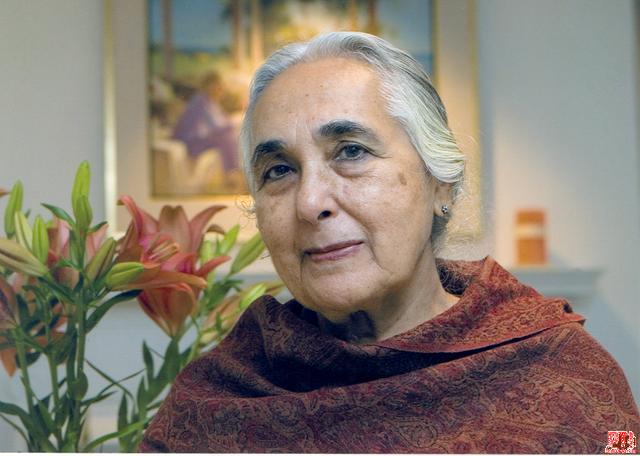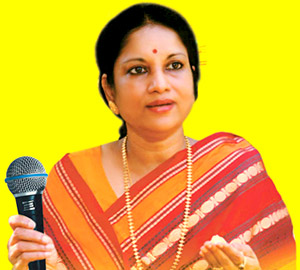1858 – Considered as ‘One of the pioneers of modern science’, eminent physicist, botanist, archaeologist and polymath Acharya Jagadish Chandra Bose was born. Acharya Bose was a student of and conducted his research with Nobel Laureate Lord Rayleigh (discoverer of Argon) at Cambridge. Upon his return to India he joined the Presidency College, Calcutta as a professor of Physics and continued with his work. He made significant progress in the field of remote wireless signalling. He was the first to produce and study the millimeter-length radio waves. A pioneer in the technology of microwave optics, Acharya Bose was the first to demonstrate how semiconductor rectifiers detected radio waves. He invented the crescograph which measures growth in plants as small as 1/1,00,000 inch per second. It was with a crescograph that Acharya Bose demonstrated how plant tissues produced electric responses to different stimuli like electrical, mechanical and chemical similar to animal tissues. This discovery influenced the fields of agriculture, physiology, chronobiology and medicine. Acharya Bose has many firsts to his credit including the first work in Bengali Science fiction ‘Niruddesher Kahini'(1896) and the first from the Indian subcontinent to obtain a US patent (1904).

1931 – Eminent historian Romila Thapar was born. Thapar whose focus of study is ancient India, graduated from the Panjab University and went on to obtain her Ph.D. from the University of London. In 1963, she published ‘Ashoka and the Decline of the Mauryas’, her first work, which discusses Ashoka’s policy of ‘dhamma’ and the reasons Maurya Empire’s decline. Her other works include ‘Ancient Indian Social History: Some Interpretations’, ‘A History of India Volume One’, ‘Early India: From the Origins to AD 1300’, ‘History and Beyond’, ‘From Lineage to State’, ‘Sakuntala: Texts, Readings, Histories’, ‘Cultural Pasts: Essays on Indian History’ and ‘Recent Perspectives of Early Indian History’. In 1983, she was elected as the General President of the Indian History Congress. In 2005 she declined the civilian honour of Padma Bhushan. In 2008 she was awarded the Kluge Prize for Study of Humanity. She is also Professor Emerita at the Jawaharlal Nehru University, New Delhi.
1938 – British hunter turned conservationist Jim Corbett shot down the ‘Thak man-eater’, a Bengal tigress who terrorized the villages of Thak, Chuka, Sem and Kot Kindri in the Kumaon along the Nepalese border.

1945 – One of the most versatile playback singers in India Vani Jayaram was born. In a career spanning over four decades, Jayaram crooned over eight thousand songs in fourteen languages. Born in a family of musicians, Jayaram underwent training in both forms of Indian classical music i.e. Carnatic and Hindustani. She made her debut in films as a playback singer in 1971 when she lent her voice for ‘Guddi’ for music director Vasant Desai. She also associated with prominent music directors like Naushad, Madan Mohan, R.D. Burman, O.P. Nayyar, Laxmikant-Pyarelal, Kalyanji-Anandji, M.S. Vishwanathan, Salil Chowdhary, Ilayaraaja, A.R. Rahman etc. She won the National Film Award for Best Female Playback Singer three times. She also won the Filmfare Award for ‘Mere Toh Giridhar Gopal’ (Meera – 1979) in 1980.
1858 – Considered as ‘One of the pioneers of modern science’, eminent physicist, botanist, archaeologist and polymath Acharya Jagadish Chandra Bose was born. Acharya Bose was a student of and conducted his research with Nobel Laureate Lord Rayleigh (discoverer of Argon) at Cambridge. Upon his return to India he joined the Presidency College, Calcutta as a professor of Physics and continued with his work. He made significant progress in the field of remote wireless signalling. He was the first to produce and study the millimeter-length radio waves. A pioneer in the technology of microwave optics, Acharya Bose was the first to demonstrate how semiconductor rectifiers detected radio waves. He invented the crescograph which measures growth in plants as small as 1/1,00,000 inch per second. It was with a crescograph that Acharya Bose demonstrated how plant tissues produced electric responses to different stimuli like electrical, mechanical and chemical similar to animal tissues. This discovery influenced the fields of agriculture, physiology, chronobiology and medicine. Acharya Bose has many firsts to his credit including the first work in Bengali Science fiction ‘Niruddesher Kahini'(1896) and the first from the Indian subcontinent to obtain a US patent (1904).
1931 – Eminent historian Romila Thapar was born. Thapar whose focus of study is ancient India, graduated from the Panjab University and went on to obtain her Ph.D. from the University of London. In 1963, she published ‘Ashoka and the Decline of the Mauryas’, her first work, which discusses Ashoka’s policy of ‘dhamma’ and the reasons Maurya Empire’s decline. Her other works include ‘Ancient Indian Social History: Some Interpretations’, ‘A History of India Volume One’, ‘Early India: From the Origins to AD 1300’, ‘History and Beyond’, ‘From Lineage to State’, ‘Sakuntala: Texts, Readings, Histories’, ‘Cultural Pasts: Essays on Indian History’ and ‘Recent Perspectives of Early Indian History’. In 1983, she was elected as the General President of the Indian History Congress. In 2005 she declined the civilian honour of Padma Bhushan. In 2008 she was awarded the Kluge Prize for Study of Humanity. She is also Professor Emerita at the Jawaharlal Nehru University, New Delhi.
1938 – British hunter turned conservationist Jim Corbett shot down the ‘Thak man-eater’, a Bengal tigress who terrorized the villages of Thak, Chuka, Sem and Kot Kindri in the Kumaon along the Nepalese border.
1945 – One of the most versatile playback singers in India Vani Jayaram was born. In a career spanning over four decades, Jayaram crooned over eight thousand songs in fourteen languages. Born in a family of musicians, Jayaram underwent training in both forms of Indian classical music i.e. Carnatic and Hindustani. She made her debut in films as a playback singer in 1971 when she lent her voice for ‘Guddi’ for music director Vasant Desai. She also associated with prominent music directors like Naushad, Madan Mohan, R.D. Burman, O.P. Nayyar, Laxmikant-Pyarelal, Kalyanji-Anandji, M.S. Vishwanathan, Salil Chowdhary, Ilayaraaja, A.R. Rahman etc. She won the National Film Award for Best Female Playback Singer three times. She also won the Filmfare Award for ‘Mere Toh Giridhar Gopal’ (Meera – 1979) in 1980.